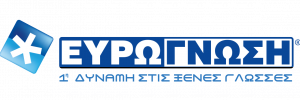The Russian language belongs to the group of Slavic languages.
Globally, Russian is spoken by approximately 300 million native speakers and also by nearly 100 million non-native speakers. The Russian language is taught in Greece in some high schools and universities, in many universities in Europe and in the Cultural centres of the Russian Embassy (which are also the official examination centres of Russian as a foreign language) all over the world.
| DEGREE | EUROPEAN LEVEL | AGE LIMIT |
| ТЭУ (elementary) | A1 | 12 |
| ТБУ (basic) | A2 | 12 |
| ТРКИ 1 (first certificate) | B1 | 14 |
| ТРКИ 2 (second certificate) | B2 | 14 |
| ТРКИ 3 (third certificate) | C1 | 16 |
| ТРКИ 4 (fourth certificate) | C2 | 16 |
ТЕУ (elementary level A1)
This is the first certification demonstrating knowledge of Russian on very simple topics. Students will acquire a vocabulary bank of approximately 700.
ТБУ (basic level A2)
This certification demonstrates the ability to communicate in Russian using the main expressions of the spoken and written language.
ТРКИ 1 (level B1)
This certification demonstrates a satisfactory knowledge of the Russian language on general subjects. It entitles its holder to be admitted to Russian universities.
ТРКИ 2 (level B2)
This certification demonstrates a good knowledge of the Russian Language on general subjects.
ТРКИ 3 (level C1)
This certification demonstrates a very good knowledge of the Russian language on general subjects.
ТРКИ 4 (level C2)
The highest certification in Russian as a foreign language. It demonstrates knowledge equivalent to native language level.

